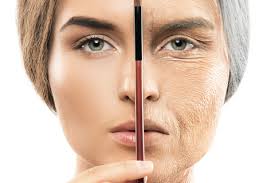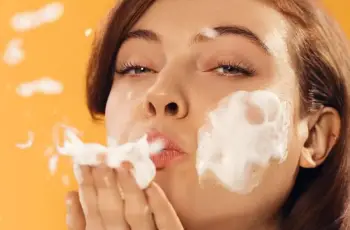
Can You Reverse Aging? 8 Ways to Reduce Premature Aging
The idea of reversing aging might sound like something out of a fairy tale.
While time inevitably marches on, and our bodies undergo inevitable changes as we age, there are ways to slow down the appearance of those changes.
Premature aging, characterized by wrinkles, sagging skin, hyperpigmentation, and dryness, is often the result of certain lifestyle habits or skincare missteps.
But with the right approach, you can dramatically reduce these visible signs and look years younger.
In this article, we’ll explore why premature aging happens, which habits accelerate it, and how you can take control of your skin’s aging process with non-invasive solutions.
Whether you’re in your 20s or 50s, it’s never too late to start taking action.
What is Aging?
Aging is a natural biological process that occurs at both the cellular and physiological levels. Aging can be divided into two categories:
Intrinsic Aging: This refers to the natural, genetically determined aging process that happens over time.
Our cells naturally become less efficient, meaning skin starts to lose its youthful properties, including collagen, elastin, and hydration.
Extrinsic Aging: These are external factors, often lifestyle-related, that can speed up the aging process.
Smoking, poor diet, excessive sun exposure, alcohol consumption, and pollution can all contribute to extrinsic aging.
At the cellular level, aging involves a gradual loss of cell regeneration and repair. As we age, our cells become more sluggish in reproducing, and the accumulation of waste products makes tissues stiffer.
This decrease in cell activity means that skin becomes thinner, drier, and less resilient, with visible signs like wrinkles and sagging becoming more prominent.
At What Age Do Aging Symptoms Start?
Aging doesn’t happen overnight, and the signs of aging can start appearing earlier than many realize.
Some experts suggest that visible signs of aging start around age 29, when the production of collagen—the protein responsible for skin’s strength and elasticity—begins to slow down.
This is when fine lines may appear around the eyes, and other signs such as dry skin, sun spots, and slight sagging can become noticeable.
Though aging is inevitable, it doesn’t mean you have to passively accept it. Lifestyle factors such as diet, skincare routines, and even daily habits can either slow down or speed up the aging process.
The good news is that, with the right choices, you can preserve a youthful appearance and age gracefully.
Is It Possible to Reverse the Process of Aging?
While the notion of completely reversing aging remains out of reach for now, some scientific advancements have raised the possibility of partially reversing aging at the cellular level.
In 2020, a groundbreaking study published in Cell explored gene therapy in mice, showing that reversing certain aging markers was possible.
By reprogramming the cells to revert to a more youthful state, researchers were able to extend the lifespan of aging mice and even restore some of their biological functions.
However, this approach is still in its infancy, and the potential risks, such as tumor development, have led scientists to recommend caution.
While reversing aging is not currently a safe or feasible option for humans, research continues, and breakthroughs may be closer than we think.
For now, the best option is slowing down the visible effects of aging using preventive measures, healthy habits, and skin treatments that support youthful skin over time.
How to Slow Down Premature Aging
Premature aging can occur when aging happens faster than it should, often due to lifestyle factors.
By adopting the following habits, you can prevent premature aging and keep your skin healthy, youthful, and glowing.
1. Healthy Diet
What you eat plays a critical role in how your skin ages.
A diet rich in antioxidants, vitamins, and minerals can help counteract the visible signs of aging, making your complexion appear more vibrant and youthful. Some foods to consider adding to your diet include:
Watercress: Helps oxygenate the skin and promote healthy circulation.
Red Bell Peppers: High in vitamin C, which helps promote collagen production and protect against skin damage.
Broccoli: A powerful anti-inflammatory vegetable rich in vitamin C, which is essential for collagen synthesis.
Leafy Greens: Kale and spinach are packed with antioxidants and vitamin K.
Nuts and Avocados: These provide healthy fats and essential fatty acids that keep skin hydrated.
A Mediterranean diet has also been linked to slowing cellular aging by extending the length of telomeres, the structures that protect our DNA and prevent cellular damage.
2. Avoid Smoking
We all know smoking is harmful to overall health, but it’s particularly devastating for your skin.
Smoking accelerates aging by reducing the skin’s blood supply, leading to a loss of collagen and elastin, which results in thin, sagging skin.
Additionally, the chemicals in cigarette smoke break down the skin’s natural protective barrier, making it more prone to dryness, wrinkles, and dullness.
Studies have shown that smokers are more likely to experience premature wrinkles, especially around the mouth and eyes.
If you want to protect your skin and preserve its youthful appearance, quitting smoking should be a top priority.
3. Use a Retinoid
Retinoids, found in products like Foundation Skincare’s Night Renewal Cream, are among the most effective anti-aging ingredients.
Retinoids help increase cell turnover, improve skin texture, reduce the appearance of fine lines, and boost collagen production. Over time, they can help fade age spots and promote smoother, more even skin.
While retinoids are highly effective, results take time. Expect to see visible improvements after about three months of consistent use.
Additionally, because retinoids can increase skin sensitivity to the sun, always apply a broad-spectrum sunscreen during the day to protect your skin from harmful UV rays.
4. Exercise Regularly
Exercise is not only beneficial for your overall health but also for your skin.
Regular physical activity increases blood circulation, ensuring that oxygen and nutrients are delivered to your skin cells. This helps your skin appear more vibrant and youthful.
Moreover, research has shown that exercise may slow the aging process at a genetic level by lengthening telomeres, the protective caps on chromosomes.
A study found that people over 40 who exercised regularly had skin that resembled that of individuals in their 20s and 30s.
5. Daily SPF & Moisturizer
Sun exposure is one of the primary contributors to premature aging. UV rays break down collagen and elastin fibers, leading to wrinkles, fine lines, and age spots.
To protect your skin, use a broad-spectrum sunscreen with an SPF of 30 or higher every day, even on cloudy days.
Additionally, sunscreen helps prevent skin from becoming dehydrated by blocking the sun’s harmful rays that can cause moisture loss.
Pair your sunscreen with a hydrating moisturizer that contains hyaluronic acid to ensure your skin stays plump, smooth, and well-hydrated.
6. Prioritize Anti-Aging Skincare Products
Incorporating anti-aging products into your skincare routine is an essential step in preventing premature aging.
Niacinamide, for example, is known for its ability to reduce inflammation, improve skin elasticity, and promote collagen production.
Additionally, vitamin C is a powerful antioxidant that can protect your skin from free radicals, brighten your complexion, and reduce signs of aging.
Foundation Skincare’s Niacinamide Lotion 10% combines niacinamide with hyaluronic acid, making it an excellent choice for those looking to hydrate, brighten, and smooth the skin.
Similarly, Foundation Skincare’s Vitamin C 20% serum promotes collagen production and provides protection against environmental stressors.
7. Stay Hydrated
Proper hydration is crucial for maintaining youthful skin. Dehydrated skin can look dull, saggy, and more prone to wrinkles.
Aim to drink 6-8 glasses of water per day to keep your skin—and your body—well-hydrated. Hydrated skin looks fuller and more radiant, which can minimize the appearance of fine lines and wrinkles.
You can also incorporate hydrating foods like watermelon, cucumbers, and zucchini into your diet to help boost hydration levels.
8. Cleanse Gently
How you cleanse your skin matters. Harsh scrubbing or using overly abrasive exfoliants can damage the skin’s natural barrier and accelerate the aging process.
Instead, opt for a gentle cleanser that won’t strip your skin of its natural oils. After cleansing, follow up with a serum or moisturizer that supports skin regeneration and hydration.
Key Takeaways
While you can’t completely reverse aging, it’s possible to slow down its effects and maintain youthful, glowing skin with the right habits and skincare routine.
Start by eating a nutrient-dense diet, exercising regularly, using high-quality anti-aging skincare products, and always protecting your skin from the sun.
Investing in proven, long-term anti-aging strategies can help keep your skin youthful and radiant, while steering clear of overhyped fads or dangerous treatments.
By following these simple steps, you’ll be well on your way to aging gracefully and maintaining your skin’s natural beauty for years to come.
For more tips on preserving your skin’s health, stay tuned to our blog or sign up for our newsletter!


